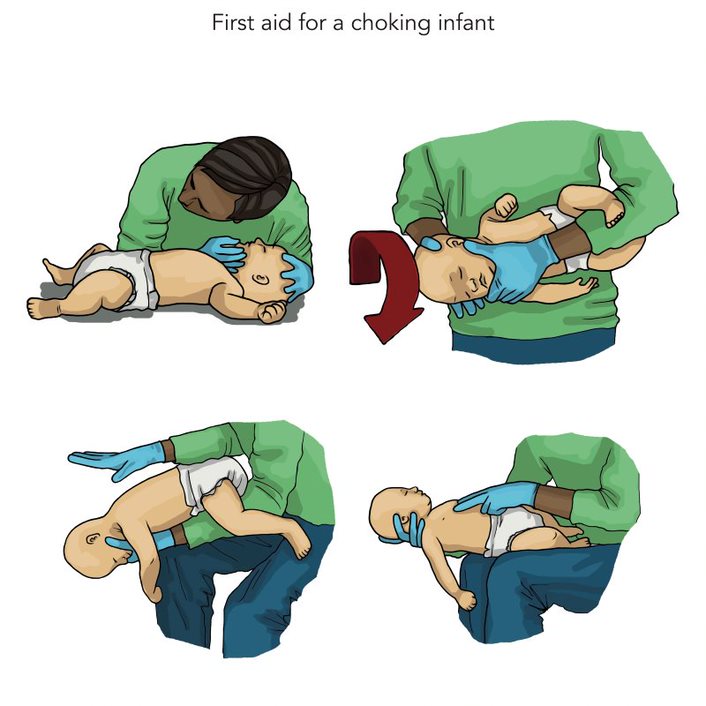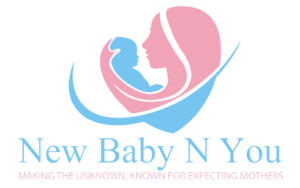New parents can often feel overwhelmed by the skills and information they need to have before the arrival of their newborn baby. From feeding, burping, bathing, breastfeeding, CPR, and so much more. It can feel as though becoming a parent demands superhuman powers. And while there is a lot to learn, there’s no reason to be overwhelmed.
Using your pregnancy to become familiar with the must-knows of baby care means you can learn at your pace in small and manageable chunks. And if you’ve not learned everything before birth, you can continue your education when your bundle of joy is out in the world. However, one thing we recommend learning as early as possible is infant CPR.
What is infant CPR?
CPR helps restore blood flow to the brain, heart, and vital organs, restoring breathing or supporting until further medical assistance is given. Blood flow is essential to a functioning body as our organs require oxygen-rich blood.
The main difference between adult and infant CPR is the cause. Infant CPR is usually due to respiratory issues that cause cardiac problems. Whereas, in adults, CPR directly links to cardiac arrest.
The physical action of CPR is composed of chest compressions and mouth-to-mouth resuscitation. Adult and infant CPR require thirty chest compressions for every two rescue breaths.
Why do new parents need to know CPR?
No parent wants to be in a position where infant CPR is required. But, knowing CPR during a medical emergency could save your child’s life. In addition to this, many new parents decide to learn infant CPR as it makes them feel better prepared if an unfortunate emergency occurs.
When you might require CPR
Infant CPR is necessary when your child
-
shows no signs of life
-
is unconscious
-
is unresponsive
-
is not breathing normally
They might be in this state for several reasons. Causes of baby’s heartbeat and breathing stop:
-
Asthma
-
Suffocation
-
Sudden infant death syndrome (SIDS)
-
Drowning
-
Poisoning
-
Electric shock
-
Smoke inhalation
If your baby stops breathing, you need to call the emergency services and begin CPR. If you’re not trained in CPR according to the current CPR guidelines, you must wait for advice from a medical professional. Incorrect CPR can harm your baby further.
How to give a newborn CPR
Cardiopulmonary resuscitation (CPR) is one of the more intimidating elements of baby care. And the prospect of having to do CPR on your baby is scary. However, remember, it’s best to prepare for these circumstances should the worst happen.
We recommend both parents, and any relative that might regularly care for your baby, learn infant CPR. Learning CPR doesn’t need to be daunting; it shows you’re doing everything you can to care for your new baby.
Newborn CPR guidelines
When you attend your CPR course, you’ll learn according to the current CPR guidelines in your state or location. However, familiarizing yourself with this pre-course can assist the learning process.
According to The American Heart Association’s 2022 guidelines, parents should do the following when engaging in CPR:
-
Shout for help
-
Call 911
-
Send someone to search for an automated external defibrillator (AED)
-
Check for breathing and pulse, but no longer than ten seconds. A pulse rate less than 60 beats per minute is considered no pulse in young children.
-
Check the brachial artery on the inside of the arm by the armpit.
-
Check their breath every 3-5 seconds
-
Check their pulse every few minutes
-
If their breath is still less than 60 beats per minute, add compressions.
-
Use the AED when it arrives.
-
100-120 compressions per minute.
When you attend CPR classes led by a qualified instructor, you will receive full medical guidance. We recommend searching for CPR classes in your local area as soon as you find out you’re expecting. Infant CPR qualifications are in high demand, and you don’t want the added pressure of learning CPR just a few weeks away from giving birth. However, if you are nearing your due date, it’s never too late to learn infant CPR and provide the best baby care you can for your newborn.
Once you’re qualified, you’ll need to stay updated with changes in infant CPR guidelines. CPR guidelines can change every year. And as your child grows, you might decide to engage in CPR classes tailored to their age range.
CPR is one of the most important elements of newborn baby care. Educating yourself on CPR and gaining a qualification could be a decision that saves your child’s life. Familiarize yourself with the CPR guidelines for 2022, search for local CPR classes and learn how to give newborn CPR before your little one arrives.


